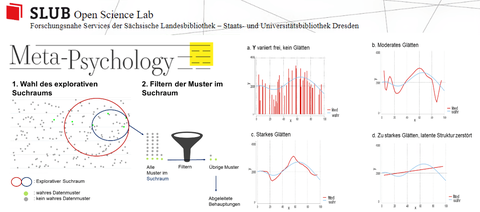Aug 20, 2023
New post on valuable exploration on the TUD’s Open Science Blog

Höfler et al (2023)
In the first and second articles by Michael Höfler and colleagues, suggestions for valuable exploration in the vein of transparent science were presented. The proposals serve as an alternative to two questionable practices of non-transparent exploration: p-hacking and HARKing ("hypothesising after results are known"). P-hacking means that several evaluations are carried out in order to find one that produces seeming evidence for a claim (statistically significant result). HARKing, on the other hand, involves creating a hypothesis only after a significant result that fits it is available. Instead, exploration should be transparent, only suggesting new claims and leaving their test (confirmation) to other studies and new data. Numerous statistical data smoothing and filtering techniques can be used to form new hypotheses and improve existing ones. Transparent exploration and proper confirmation feed off each other in the reciprocal process of concatenated exploration and serve replicability and trust in science. You can read more about this on the TU Dresden's Open Science Blog.
